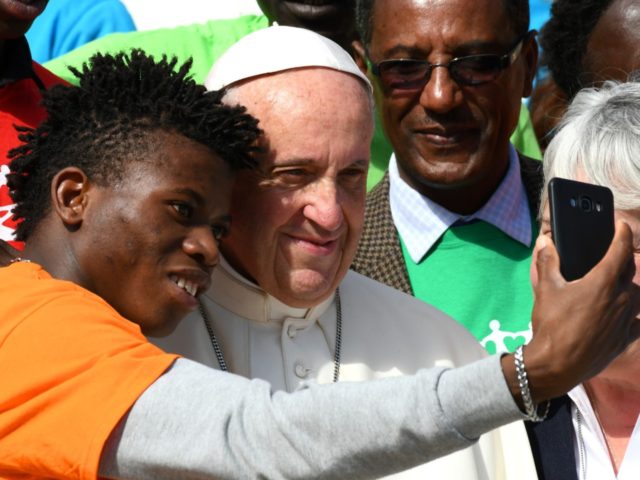“You cannot live charity without having interpersonal relationships with the poor, living with the poor and for the poor,” Pope Francis said Monday.
In his address to a delegation from the Church’s international charitable outreach, Caritas Internationalis, the pope insisted that the poor “are not numbers but people” and only through direct interaction with them can one practice charity.
“By living with the poor, we learn to practice charity with the spirit of poverty, we learn that charity is sharing,” he said. “In fact, not only is charity that does not reach the pocket a false charity, but charity that does not involve the heart, the soul, and all our being is an idea of charity that is still unfulfilled.”
Francis suggested that charity is often misunderstood and cheap substitutes step in to take its place.
“We must always be careful not to fall into the temptation to live a hypocritical or false charity, a charity identified with almsgiving, with beneficence, or as a ‘calming pill’ for our restless consciences,” he said. “This is why we must avoid confusing the work of charity with philanthropic efficacy or efficient planning or with an exaggerated and ebullient organization.”
“Since charity being the highest of the virtues to which man can aspire to imitate God,” he continued, “it is scandalous to see charity workers transforming it into business. They speak so much about charity but live in luxury or dissipation or organize forums on charity that uselessly waste so much money.
“It is very painful to see that some charity workers turn into officials and bureaucrats,” he said.
At the same time, the pope insisted that while material attention to the needs of the poor is essential, it is secondary to attending to their spiritual needs.
“The worst discrimination that the poor suffer is a lack of spiritual attention,” Francis said, emphasizing that the majority of poor people “have a special openness to faith.”
“They need God and we cannot fail to offer them his friendship, his blessing, his word, the celebration of the sacraments, and the proposal of a path of growth and maturation in the faith,” he said. In this regard, “the preferential option for the poor must mainly translate into a privileged and preferential religious care.”

COMMENTS
Please let us know if you're having issues with commenting.